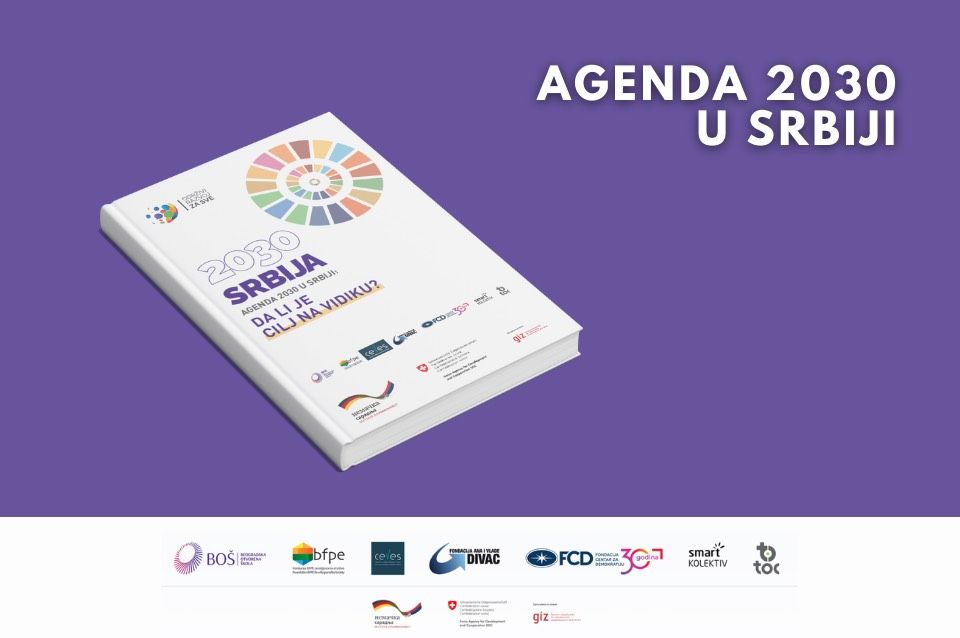Civil society organisations gathered around the “Sustainable Development for All” Platform have published the fourth monitoring report on the preparedness of the Republic of Serbia for the implementation of the 2030 Agenda, entitled “Is the End Goal in Sight?”
This report is intended for representatives of the public and business sectors, the academic community, civil society organisations, and citizens interested in gaining insight into Serbia’s current readiness to achieve the Sustainable Development Goals (SDGs), the progress made in certain priority areas, and the potential next steps.
What do the latest data show?
According to the “Europe Sustainable Development Report 2023/24”, the Republic of Serbia ranks 30th out of 34 European countries analysed, marking an improvement of one position compared to the previous year. Five goals are reported to be on track for achievement, slight progress has been observed for another five goals, while stagnation is noted for the remaining five. Data are unavailable for SDG 2: Zero Hunger and SDG 14: Life Below Water.
The organisations within the “Sustainable Development for All” Platform emphasise that the SDGs and the 2030 Agenda itself are highly complex and require adaptation to national circumstances. This entails defining developmental priorities and relevant sub-goals reflecting Serbia’s priorities, followed by the localisation of SDGs, i.e., their integration into local planning documents. The entire process must be conducted with broad societal consultations and improved partnerships across various sectors. This is a challenging endeavour, particularly given that only six years remain for the implementation of the Agenda.
Steps Towards the Goal
Positioning Agenda 2030 as a Priority: To establish Agenda 2030 as a priority process, the authority for its management, coordination, and implementation must be explicitly defined in the Law on Ministries. Additionally, these processes should be included in the the annual Program of the Government of the Republic of Serbia.
Aligning Strategic Documents with Agenda 2030: Another key recommendation involves aligning planning documents and the legal framework with the 2030 Agenda, such as adopting the Development Plan of the Republic of Serbia, the highest-ranking document in Serbia’s development planning hierarchy. Its adoption should involve a broad and transparent societal dialogue, encompassing the definition of developmental priorities and the adaptation of SDGs to Serbia’s circumstances.
Establishing Institutional Mechanisms: Institutional and coordination mechanisms must be strengthened by forming an Inter-Ministerial Working Group for the Implementation of the UN 2030 Agenda for Sustainable Development, which would collaborate with stakeholders across various activities and levels. Moreover, it is crucial to consolidate and enhance the visibility of information about all institutions, working groups, and other bodies involved in this process.
The full Serbian version of the report can be read HERE.

 381 60 30 65 800
381 60 30 65 800






